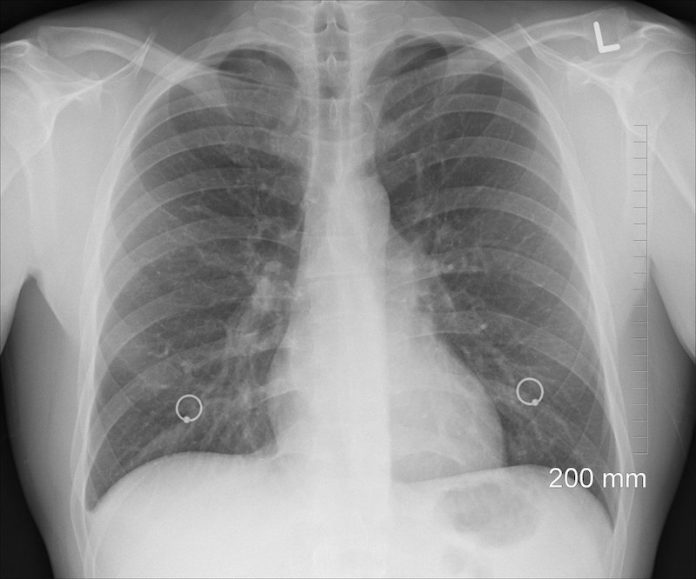
In a new study, researchers found that in severe cases of COVID-19, a massive release of the endogenous protein HMGB1 in the lungs may contribute to pulmonary inflammation and tissue damage.
They conclude that the inflammation could be treated with an HMGB1 inhibitor.
The research was conducted by a team at Karolinska Institutet in Sweden and elsewhere.
Severe viral infections can cause the immune system to over-respond to the intruding infectious agents and to produce large amounts of proteins called cytokines in what is called a cytokine storm.
This can, in turn, give rise to serious, possibly fatal inflammation and tissue damage. One of the molecules responsible for cytokine storms is the pro-inflammatory protein HMGB1.
The new study describes the molecular mechanisms behind HMGB1-mediated inflammation, including the pulmonary inflammation that can develop in severe cases of COVID-19.
The article is partly based on 20 years’ research on HMGB1.
The research shows that HMGB1 probably plays a pivotal part in the development of acute lung damage, regardless of cause.
It would, therefore, be interesting to test whether specific HMGB1 inhibitors would be able to reduce inflammation and the subsequent lung damage caused by the new coronavirus.”
While there are currently no specific HMGB1 inhibitors tested on humans, there are a number of existing drugs that are approved for other biological effects, and that also partly inhibits HMGB1.
However, they have not yet been tested for the purpose of reducing inflammation.
The team hopes to give guidance on existing drugs with the potential to mitigate HMGB1-mediated damage.
Another aim is to draw attention to this important but overlooked protein in the development of HMGB1-specific inhibitors.
Such a drug could potentially mitigate not only the inflammation caused by COVID-19 but also other lung-damaging infections.
Specific HMGB1 inhibitors have shown promise in two decades of repeated animal studies and there are already fully developed humanized antibodies targeting HMGB1.
But it is not known whether the treatment works in humans and if so, whether the adverse effects would be acceptable.
There are several other findings that make HMGB1 particularly interesting to study for severe pulmonary inflammation.
One author of the study is Ulf Andersson, senior professor at the Department of Women’s and Children’s Health, Karolinska Institutet.
The study is published in Molecular Medicine.
Copyright © 2020 Knowridge Science Report. All rights reserved.



